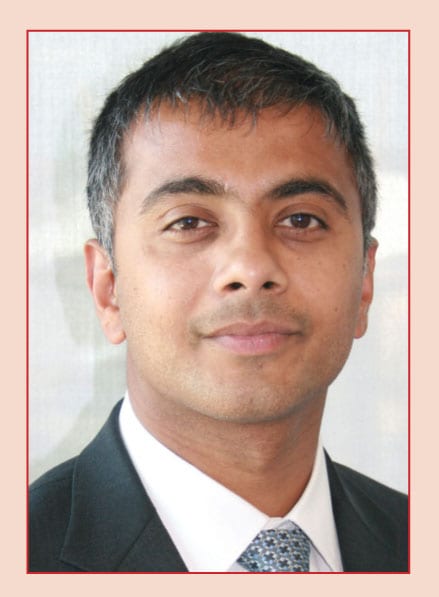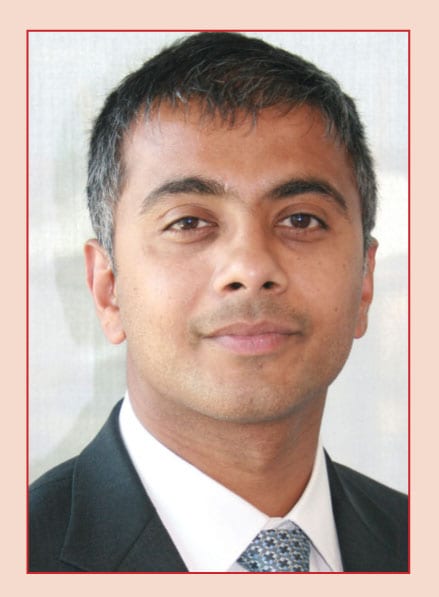After the Ballots
How the ‘year of elections’ reshaped treasury priorities
Published: May 01, 2010



This month’s Executive Interview features Vivek Ramachandran, Head of Cash & Trade at Barclays Corporate. An important element of the reorganisation within the group has been the creation of Barclays Corporate, with a view to delivering cohesive solutions to corporate customers. In this interview, Vivek discusses some of the key trends relating to cash, liquidity management and trade in the current climate. He joined Barclays in August 2008 to head the Cash and Trade team within Barclays Corporate. Prior to joining Barclays, he held various senior management roles and began his career as a management consultant with Marakon Associates, covering the financial services sector, with clients across Western Europe, Asia and the US.Vivek has a PhD in Economics from Carnegie Mellon University, Pittsburgh, USA, where he both studied and taught.
The past 12-18 months have seen corporate treasurers adopt a ‘back-to-basics’ approach to ensure that the company has sufficient liquidity to continue its activities during the economic downturn. A key lesson from the financial crisis is that corporates need better control of and access to liquidity. In our experience, many treasurers do not know exactly how much cash they have or have difficulty accessing it when they need it.
Large corporates are rethinking how to make best use of their cash, with their search for security, liquidity and yield prompting them to increase the focus on their cash management practices. Given the current market uncertainty, there is a huge premium on security of cash; this is not to say that treasurers are ignoring the potential for earning a return on surplus cash, but security of capital is non-negotiable. This creates a challenge for corporate treasurers, emphasising the importance of making cash management and investment decisions that achieve the right balance of risk and reward. For example, sovereign risk is now a greater issue than in the past, which impacts on the counterparty banks with which a treasurer may choose to hold funds.
We have recently enhanced our range of solutions to provide a range of complement-ary services for our corporate clients.
In reality, there should not need to be a trade-off between risk and reward, if treasurers are committed to relationship banking with a high quality, highly rated bank such as Barclays. Corporate treasurers should not be seeking to invest opportunistically when a higher yield arises; rather, they should be selecting their banking partners and working closely with them to construct a holistic framework for cash management and investment.
For example, at Barclays Corporate, we have not made our name by offering the highest rates to any potential investor; rather, we establish strong and lasting relationships with our clients that allow us to offer preferential rates linked to customer behaviour. Furthermore, we have recently enhanced our range of solutions to provide a range of complementary services for our corporate clients. One example of this is our Money Transmission Advantage scheme. Corporate treasurers have various cash management dynamics that occur in parallel: they pay transactional costs, they have working capital flows which are often unpredictable, and they may have surplus cash that they wish to invest. By bringing all these dynamics together, we are able to offset transactional costs and pay a return on cash balances. This means that costs are taken out of the P&L, and a competitive return is still achieved even in situations where balances are unpredictable.
Another example of our relationship-based approach to our clients is our Flexible Interest-Bearing Current Account product. This account not only pays regular interest, but also provides ongoing bonuses for longer-term cash holdings. This arrangement enables treasurers to earn higher rates than investing in a bank of a lower credit quality or subject to greater sovereign risk, without compromising on security or access to liquidity.
Corporate treasurers have re-evaluated their criteria for awarding cash management business to a bank, which is now more closely linked to banks’ willingness to lend their balance sheets. Beyond this, and the clear preference for banks with a focus on relationship banking, treasurers will have a variety of considerations when deciding to work with a bank: client service, technology, geographic reach etc. and each bank brings its own differentiators.
To ensure that these needs will be met, a potential bank needs to deliver products that are easy to understand and to implement, with a clear value proposition. These products should not be the result of an intellectual exercise within the bank, but demand-driven according to the needs and priorities of clients. To do this, banks need to have the ability and willingness to understand their customers’ needs, to design and deliver cash management solutions in a way that supports the company during good times and bad.[[[PAGE]]]
Barclays is also seeing an upswing of interest in services designed to help corporate clients find alternative sources of finance, rather than traditional debt solutions. Supply chain finance is prominent amongst these, not only to ease the flow of funds between buyers and suppliers to make the supply chain more robust at a challenging time, but also to allow buyers to negotiate improved terms whilst providing suppliers access to potentially cheaper funding.
The role of documentary trade (such as letters of credit) has changed dramatically over the past two years. Although we had seen volumes of documentary credits falling in recent years, the crisis has resulted in an upsurge of demand. Trade flows have inevitably fallen since 2008, but this drop is the result of short-term events rather than signifying a longer-term structural decline. As trade volumes pick up, the overall trend is likely to continue towards open account, but trade finance will continue to fulfil an important role. At times of market uncertainty in particular, counterparty risk is a very real issue, and documentary credits effectively mitigate this risk. Consequently, the shift back to trade finance is a reflection of the ‘back-to-basics’ approach that many treasurers are taking.
Banks need to have the ability and willingness to understand their customers' needs, to design and deliver cash management solutions in a way that supports the company during good times and bad.
Another trend we have seen over the past 18 months is that structured trade and structured commodity finance have become more important. Export credit agencies have seen unprecedented levels of business, the result of liquidity markets drying up and a greater awareness of risk. During the crisis, the secondary market for trade also disappeared, but this is now returning, which is vital for trade banks to provide greater capacity for customers.
One issue for the future is that many economies are now emerging from what has effectively been a massive ‘stress test’. During this period, trade assets have proved very reliable and attractive as the basis of corporate banking. A concern amongst trade banks is that Basel II, and its successor Basel III, do not adjust for trade assets in their risk models, which will in turn act as a disincentive to trade lending as banks will need to hold additional capital against trade flows.
A stressed business environment has resulted in a greater demand for transactionally-secured financing i.e., financing automatically linked to specific events such as purchase orders, invoices or receivables. There is still a lack of connection between key steps in procure-to-pay processes with supply chain financing, although there are solutions developing that seek to close the gap, such as SWIFT Trade Services Utility (TSU); however, fragmentation remains. Winners will undoubtedly emerge, particularly banks that have a holistic approach to trade and cash solutions, and so are in a better position to respond to these customer demands. Supply chain finance brings considerable value to both buyers and suppliers: buyers are able to increase their days payables outstanding (DPO) without compromising supplier relationships; suppliers can access financing at a better rate and without affecting their credit facilities. Consequently, we see this as key to working capital solutions of the future.
Cash management priorities have evolved on a number of fronts. Treasurers are focusing more on managing the company’s working capital and liquidity position more effectively and maximising internal financing during a period of constrained external credit. Corporates are rethinking how they engage with providers of financial services, which makes it increasingly important for banks to establish closer, long-term relationships with their clients.
We believe that Barclays Corporate’s approach to true relationship banking, that rewards loyalty and delivers solutions that are closely aligned with the dynamics in customers’ business, is a key differentiator and one of the main reasons that treasurers choose to work with us.
An important priority for us has been to attract and retain staff with the skills and expertise that our customers need, not simply to understand their balance sheet but to develop a deep appreciation of their working capital cycle. This has been critical in ensuring that our solutions have a clear value proposition and are targeted at addressing customer priorities. We have a close relationship with Barclays Capital and Barclays Wealth, which enables us to construct bespoke, innovative, transparent solutions for our clients, leveraging skills and solutions that are rarely as easily accessible from other banking providers.